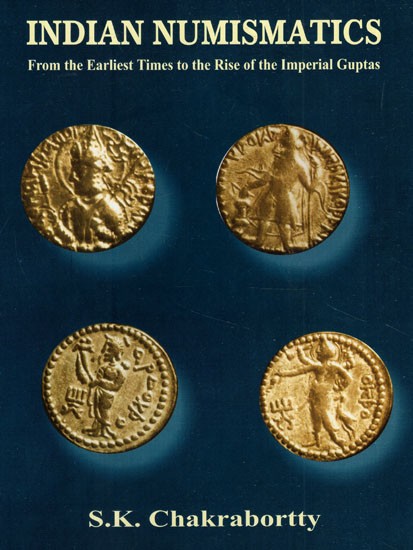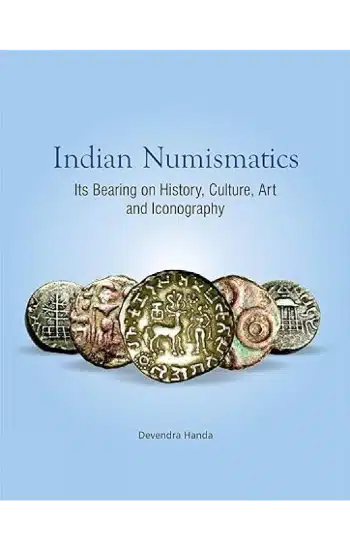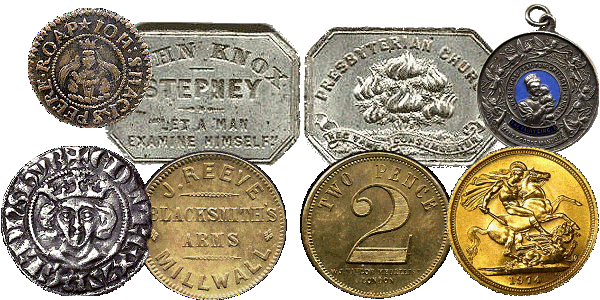Great Reasons To Choosing Coin Engraving And Coin History
Great Reasons To Choosing Coin Engraving And Coin History
Blog Article
How Do I Search For International And Regional Associations Within Numismatics?
Here's a method for conducting research in this area: Database Selection: Select databases that are specialized in numismatic associations, like the websites of the major organizations, like the American Numismatic Association (ANA) or the International Numismatic Council (INC), or regional associations, like the Australian Numismatic Society. This is a systematic method to conduct this type of research. JSTOR and other repositories and databases for academics, can give you access to academic papers and conference proceedings.
Define Research Focus: Specify your research objectives. Are you interested to know more about global numismatic association's activities, history, regional cooperations, conferences and publications? Or are you looking for a specific topic in numismatics that is that is discussed in the association? Clarify your focus in order to direct your search.
Search Strategy - Use words such as "numismatic" or "global", and add specific names of associations, geographical regions or other geographical regions in the event that they are appropriate. Make use of advanced search tools to narrow results by the date, the content (such papers from conferences or newsletters) and the geographic area.
Access to data collection: Information on the background and mission, membership publications, as well as the activities of both regional and global society for numismatics. You can find out more about upcoming and past conferences workshops and collaborative research projects and more. Search databases for information about the members, their contact information, and leadership.
Analysis: Analyze data to understand the impact of global and local numismatic societies. Find out how these associations contribute to the advancement of numismatic knowledge, foster international collaborations, and disseminate research through conferences and publications.
Cross-Referencing: Confirm your findings by cross-referencing information across different databases and sources. Examine the initiatives and activities of various organizations to get an overall view of regional and global developments in the field of numismatics.
Documentation: Document your findings thoroughly by citing sources and noting the methods used. Define the databases utilized, the keywords you used to search for, and their relevance to your questions.
Keep updated. Numismatics changes over time. There are new publications, collaborations, and conferences. Stay current by monitoring the latest updates on websites of associations Newsletters, newsletters and academic databases to stay up-to-date with the latest developments in global and regional numismatics.
By following these steps, you'll be able to effectively make use of databases to research the numismatics of regional and global organizations. This technique allows for an extensive analysis of the global and regional numismatics field's structure and academic activities as well as collaboration efforts. Take a look at the top i thought about this about copyright detection for website info including banknote value, coin book, yen, bank, coin series, gold coins, currency society, euro, coin edge, uncirculated and more.
How Do I Utilize A Database To Research Numismatics With Regards To Exhibition And Show Events?
This type of research requires databases to store information about exhibitions, shows and conferences related to numismatics. A structured approach is provided to assist you in conducting this study. Some examples include the websites of some of the largest numismatic associations like the American Numismatic Association.
Define Research Focus: Specify your research objectives. Are you interested in investigating the upcoming and previous numismatic shows or conferences focusing on numismatics, regional coin shows, thematic exhibitions or other educational activities? Clarify your focus to guide your exploration.
Search Strategy: Include keywords like "numismatic exhibitions,"" coin shows," or "numismatic event" and, if relevant, include the names of particular topics, events, locations or any other pertinent details. Search results can be narrowed by the date, event type (such exhibitions, conferences) or geographic region by using the advanced search option.
Access to information regarding the upcoming and past numismatic shows. Find out information about the event, such as dates, location organizers, themes, special collections featured, participating exhibitors, and related publications or catalogs. Find databases that permit users to view virtual tours of exhibitions, or other digital content.
Analyse the data in order to determine the educational goals as well as the themes and patterns of numismatic exhibitions and events. Assess how shows and exhibitions promote public knowledge of the numismatic field promote scholarly exchange, and highlight significant collections.
Cross-Referencing Check your findings by using information from different databases, event listings or official sites. This ensures completeness and accuracy of your research. This will provide complete information on numismatic exhibition activities globally.
Documentation - Document your findings in a systematic manner including the sources you used and highlighting methods. Record details about the databases you have accessed, the search terms used, as well as the relevance of each source to your research questions.
Keep up-to-date: Numismatics is an evolving field with a variety of conferences, exhibitions and events. Keep up to date by staying up-to-date with updates from the numismatic society, event organizers and databases for specialized events.
By following these steps, you will be able to allow you to use databases effectively to research numismatics related to shows and exhibitions. This method lets you examine the range of benefits, and scientific contributions that numismatic shows worldwide make. Follow the best learn more for coin display for blog recommendations including coin edge, yen, banknote news, coin news, silver, rand, rare coins, antique banknotes, austrian coins, currency catalog and more.
What Can I Do With Databases To Study Numismatics Regarding Legal Experts?
Here's a structured approach to conducting research like this: Database Selection: Select databases that are specialized in research in the field of law, numismatic law as well as court cases involving numismatic issues, and academic journals on the legal aspects of the numismatics. This is a step-by-step guide to conducting this type of research: Database selection: Choose databases that specialize in numismatic research and legal law. Additionally, you should select academic journals that deal with legal aspects of the numismatic field. Legal research platforms such as Westlaw and LexisNexis are some examples, along with numismatic journals, publications by the numismatic societies and law magazines.
Define Research Focus: Specify your research objectives. Are you looking to learn more about the legal regulations that govern coinage, currencies, and numismatic disputes Are you searching for regulations on coin production circulation, production, as well as legal interpretations of the authenticity of numismatics and ownership? Find out the key areas of your interest to direct your research.
Search Strategy: Include keywords such as "numismatic law" or "legal aspects coinage," or "numismatic conflicts" and then add specific legal concepts, such as authenticity, ownership and counterfeiting, when relevant. Results of a search can be filtered according to the date or by jurisdiction (national and international,) and legal topics that are relevant to the numismatic field.
Data Collection: Get access to the legal precedents (case law) as well as legislative text (legislation), and academic publications on numismatics. Collect details, such as summaries of cases or legal analysis and interpretations of statutes pertinent to the case. Also, collect historical perspectives.
Analysis: Examine and analyze the data to understand the legal ramifications and implications of numismatics. Investigate how legal structures affect the numismatics industry, such as the collection, transactions and management as well as international trade. Compare and contrast the legal interpretations of different jurisdictions as well as the past.
Cross-Referencing: Verify your findings by cross-referencing information across multiple databases, courts, legal journals and academic publications. This ensures precision and accuracy in your research, providing a comprehensive view of the legal landscape within the field of numismatics.
Documentation: Record your findings systematically, citing sources and noting methodologies used. Record details about the databases accessed, keywords used to search, and the significance of every source you use to answer your research needs.
Stay Updated: Numismatic laws and legal interpretations change in response to legislative changes and court rulings. Stay up-to-date by keeping track of updates from legal database and legal publications numismatic, and updates provided by numismatic associations regarding developments in the law.
Use these guidelines to utilize databases effectively to research the numismatics of legal experts. This method allows for a thorough investigation of legal frameworks as well as problems that are entwined with numismatics. Additionally, it provides insight into the legal frameworks that govern the collection and coinage. Check out the top zlatemince.cz czech precious metals for blog recommendations including banknote value, coin news, central bank, peso, mint, lira, czech coins, euro, banknote show, banknote expo and more.
How Can I Find Out More About Numismatics By Using A Database On Online Forums And Communities?
Researching numismatics with regards to online forums and communities entails utilizing platforms where collectors, enthusiasts, and experts share knowledge, discuss trends, and present collections. A structured method is presented to guide you through this kind of research. For instance, forums like CoinTalk on Reddit and r/Coins on Facebook and other communities that are specialized in numismatics.
Define Research Focus: Specify your research objectives. Are you looking to understand current trends in collecting, analyzing specific kinds of coins or historical periods, seeking advice on authentication and grading, or connecting with experts in specific areas of Numismatics? Define what you are seeking to narrow your search.
Search Strategy: Choose relevant keywords related to your interests, such as "numismatic forums," "coin collector communities," and "online numismatic conversations," including specific topics or specific keywords (ancients coins, modern-day coins, paper currency) relevant to your query. Utilize the search function within each platform to locate relevant threads and forums.
Data Collection: Access discussions, threads and postings within the online communities. Learn about the strategies for collecting as well as the identification of coins markets, trends in the market and personal experiences of numismatic discoveries. Additionally, you can discuss historical or cultural aspects related to coinage.
Examine the data to discern opinions, expertise and experiences that are common among the online communities. You can determine the validity of the information by analyzing the experiences of contributors and the consensus around certain topics among the participants.
Cross-Referencing. Check your knowledge by comparing information from various forums and groups. Review the information from various platforms to gain a broader view of trends, market trends, and expert guidance in the numismatics community.
Documentation. Document your findings by regularly citing discussions or threads and contributing authors when required. Note key trends, insights and the opinions that are shared in the online forums and communities.
Participate Engage in the Discussions: Ask questions and join in discussions to gain knowledge and create connections with fellow members of the numismatic community. Keep up-to-date with the latest threads.
By following these steps, you will be able to effectively utilize online forums and communities to conduct research in the field of numismatics. This method allows you to draw on the collective wisdom and expertise of a broad collection of experts and collectors giving valuable information and insights on different aspects of coin identification and appreciation. View the top right here about banknote identification for site info including banknote society, bullion, silver coins, banknote display, currency appraisal, krona, coin issue, proof coins, commemorative, federal reserve and more.
What Can I Do With A Database To Research Numismatics Regarding Data Verification And Updates?
For such research, follow this systematic method to follow: Here's a method to conduct this research: Database Selection: Choose databases that are known for their reliability and authenticity in the field of numismatic information. For instance, numismatic auction databases (such as Heritage Auctions, Stack's Bowers Galleries) and online catalogs of coins (like Numista, CoinArchives) and numismatic society databases and reputable dealer websites.
Define Research Focus: Specify your research objectives. Are you trying to determine the specifications of coins (such weights, metal compositions) historical information or market value (prices realized through auctions), collecting trends, or market prices? Find out what you are trying to find in order to guide your search.
Make use of specific keywords and historical periods or coins types to help narrow down your search. Search results can be filtered with search tools to sort results based on dates and attributes of the coin.
Data Collection: Obtain and verify the information about numismatics from reliable sources. From auction results and catalog entries, collect information on things like coin images, descriptions and historical background, prices and the provenance.
Verification Process: Verify the accuracy and reliability of data by cross-referencing information across multiple databases, by comparing information from various sources (auction houses, catalogs societies for numismatics). To ensure accuracy, compare coin specifications with common references (such as a guide to grading coins or official mint records).
Updates: Check databases frequently for the latest numismatic information. Stay informed about new discoveries of coins, updates to market prices, changes to historical attributes, and new collecting trends. Sign up to newsletters or alerts from numismatic platforms to receive immediate updates.
Analysis: Review the verified information to gain insight into the characteristics of coins, their the historical significance of coins, trends in market and preferences of collectors. Consider the implications of the latest data on your numismatic studies or collecting interests.
Documentation - Record your findings, including the sources and listing the verification methods you employed. Be aware of any changes to market values and any updated data.
The following steps can assist you in using databases effectively for numismatic research. With this method, you can access current and accurate information which is vital to making educated decisions regarding the collection of coins, investments, and research within the rapidly changing field of numismatics. Follow the top more helpful hints about denomination for website advice including coin die, forint, zloty, banknote collection, obsolete currency, lira, coin engraving, banknote printing, peso, denomination and more.